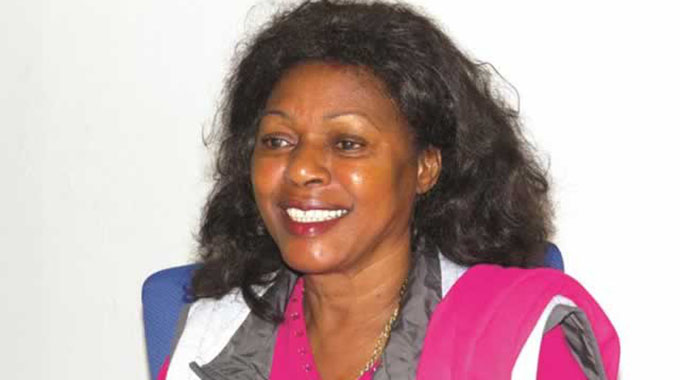November, a special month on the Zim calender
Known as Mbudzi in Shona or Lwezi in Ndebele, it is during this month that everything with links to the spiritual Zimbabwean tradition is temporarily put on hold. Suffice to say life on the other side doesn’t come to a standstill, because of a flurry of activities taking place elsewhere.
One such event, which does not yield to spiritual dictates of the country, is the commemoration of 16 Days of Activism against Gender Based Violence that takes place from November 25 to December 10.
The annual commemorations in Zimbabwe and beyond have increased community and public awareness on the issue of domestic violence, resulting in the Government promulgating pieces of legislation that protect women and men from perpetrators of abuse.
However, one thing that stakeholders in the fight against this heinous act agree on is that Zimbabwe continues to grapple with an increase in gender-based violence cases despite the ongoing campaigns.
Cases such as the gruesome Chitungwiza murder of Petros Mutasa by his wife Fortunate Nsoro last year and similar other heart-rending tragedies have put the spectre of domestic violence firmly in public spotlight.
The sad part of this issue is that gender based violence has in the last few years taken many forms from a mere spat in the home, exchange of words between two people to blows, injuries that have resulted in deaths of several people. Statistics from police show that killings and murders owing to domestic violence are on the rise.
With no stereotypical perpetrator of abuse, as was the case before where men were on the forefront, the whole matrix of domestic violence is showing fissures and information gaps that need to be addressed for the country to win the war against this problem.
Yes, a majority of Zimbabweans are now aware of gender based violence and its consequences, but sadly perpetrators of violence are not using the information to reduce the incidents if events on the ground are anything to write home about.
Every day newspapers carry heart-rending stories of domestic violence and some have turned tragic, like what happened between Mutasa and Nsoro.
It has actually become a daily occurrence that at least two people are brutalised and sometimes killed in domestic violence cases against a backdrop of serious awareness campaigns Zimbabwe has been holding for the past two decades to curb violence in the home.
Figures on the ground show that domestic violence is a serious problem that Zimbabwe will not wish away by merely holding month long campaigns, without coming up with a pro-active solution to end the problem.
Figures that police have been releasing from 2008 to 2014 clearly show that the problem is far from over and is actually taking many forms, making it practically impossible for the nation to create the hype around awareness without looking at other approaches like imposing stiff sentences on perpetrators.
In 2008 police dealt with 1940 cases of domestic violence. In 2009 the figures went up to 3 193 and almost trebled in 2010 when 7 628 cases were reported. In 2011 police dealt with 20 351 cases and 10 871 in 2012. The cases rose once again last year when police dealt with 13 600 cases. Some people argue that the increase in cases points to a growing awareness whilst others believe the figures could be higher than this, but there is under-reporting especially in communal areas where disputes are often arbitrated within the family.
Whatever the case, domestic violence continues to increase unabated as the majority of Zimbabweans battle to cope with economic and social problems on the home front.
Most reported cases of domestic violence were triggered by allegations of infidelity and economic related problems.
Economic abuse manifests itself into various forms, and is the resultant cause of domestic violence in many homes, when a woman is beaten up for daring to ask the man why he is not providing for the family. Economic abuse has also resulted in several men being bashed by their wives, or being taken to court for failing to maintain their families.
The paradox of economic gender based violence is that it is not only perpetrated at an individual level, but also at a national one, where the large populace of women are living below the poverty datum line, are not employed and survive on vending to sustain themselves and their families.
In addition to that women are faced with a myriad challenges that include discrimination on the basis of gender, unequal resource allocation, income distribution opportunities and just unfair economic practices at the national level.
It is saddening to note that economic violence being experienced includes limited access to funds and credit; controlled access to health care, unemployment, lack of education, exclusion from financial decision making and discriminatory traditional laws on inheritance, property rights, and use of communal land.
Some experience fraud and theft from men, illegal confiscation of goods for sale, and unlawful closing down of worksites. At home, some people bar their partners from work while other men totally abandon family maintenance to the women. Economic violence results in deepening poverty and compromises educational attainment and developmental opportunities for women. It leads to physical violence, promotes sexual exploitation and the risk of contracting HIV, maternal morbidity and mortality, and trafficking of women and girls. Economic abuse may continue even after the woman has left the abusive relationship.
It is for that reason that some women then opt to live with an abusive partner and put up with a lot of harassment simply because they depend on the abusive husband for survival.
Instead of leaving an abusive relationship, an unemployed woman with no source of income to care for herself and her children, is more likely to stay put, than leave and starve.
Clearly the dynamics have shifted in terms of the perpetrators, but programmers across the country continue sending same messages that depict women as victims and men as perpetrators.
Research spanning over 40 years conducted by the University of Central Lancashire consistently found that men and women self-report perpetrating domestic violence in the same rates.
Even our local media reports and police statistics point to an increase in the number of women who abuse their male counterparts, although men by ratio have the highest populace of aggressors in cases of domestic violence.
The erosion of the passive female stereotype is likely to result in more women being charged and convicted of domestic violence.
What the country needs at the moment is a massive movement of outrage, with people clearly condemning violence rather than pay lip service to this common response to women and men’s oppression.
The nation needs to create platforms to talk and raise debates on the social and economic cost of domestic violence, without adding other fundamentals that threaten to grind Zimbabwe’s economy to a halt.
It is everyone’s wish that this year’s 16 days of activism commemorations go beyond rhetoric. Everyone hopes that the commemorations will not be just banner-holding events, but will see stakeholders conduct day to day campaigns, visit companies, schools, college, villages and gold claims and conscientise people on the dangers of domestic violence.
Domestic violence is a serious cancer that will erode all the gains made at household and national level, and should not be allowed to spread.







Comments